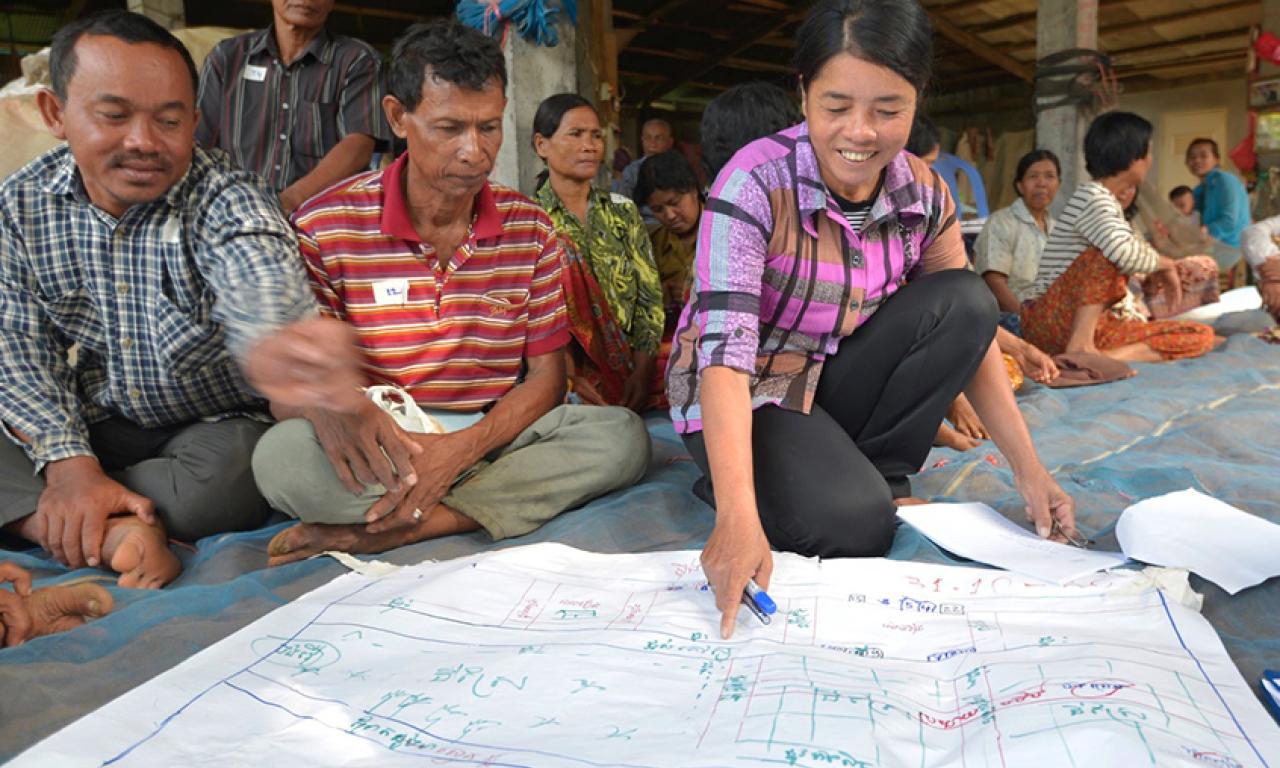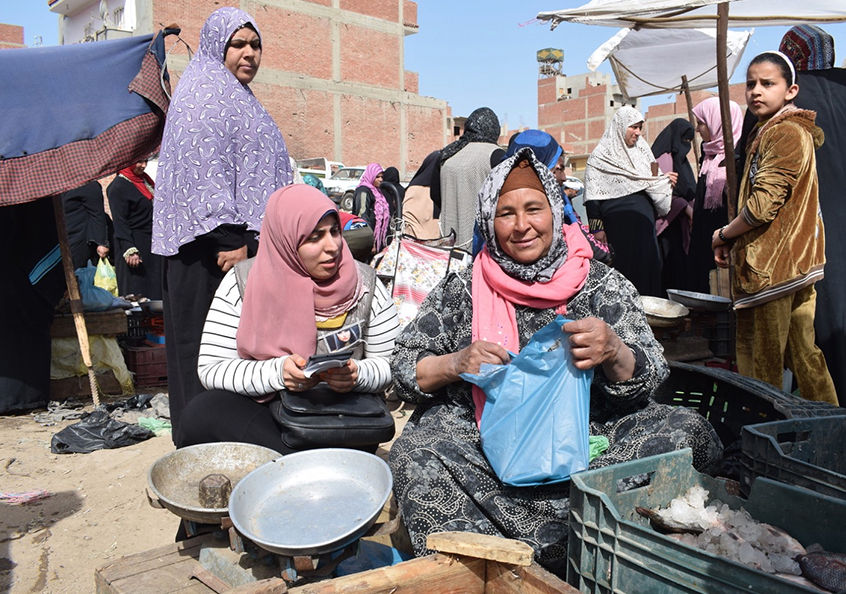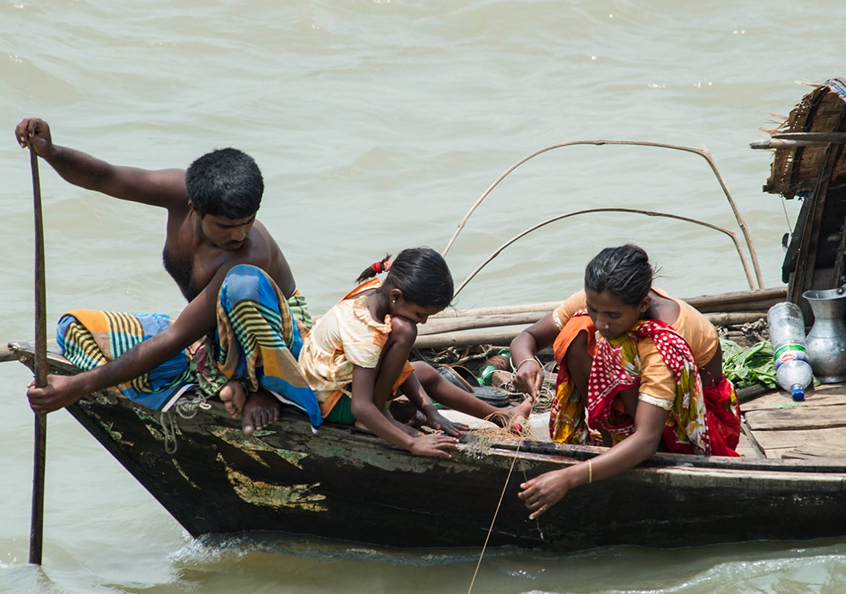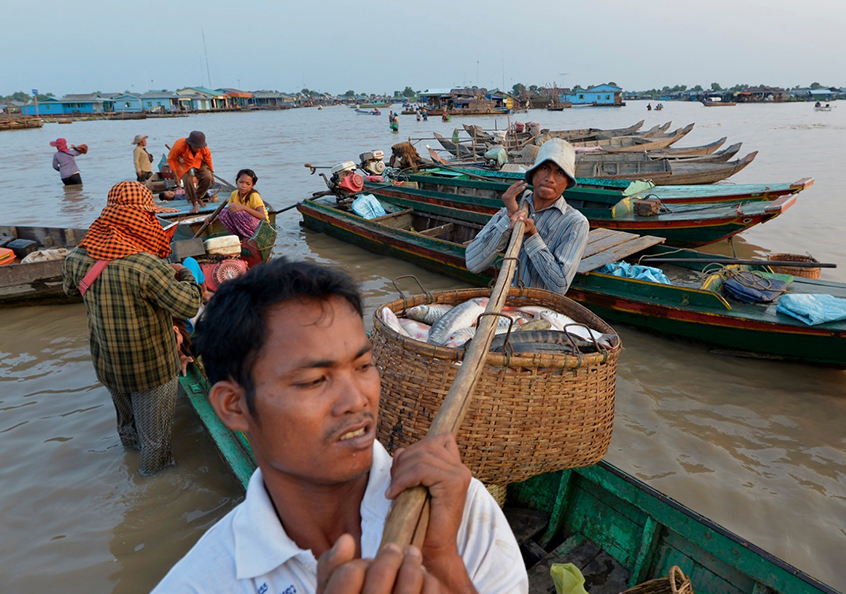
A WorldFish honorary fellow has called for scientists and policymakers from around the world to listen and respect each other’s values more to better serve the fisher people of the world.
Recommended publications
A WorldFish honorary fellow has called for scientists and policymakers from around the world to listen and respect each other’s values more to better serve the fisher people of the world.
This is critical to strengthening research collaborations and addressing areas of ignorance, said reflective practitioner Dr. John Kurien.
Kurien’s comments were made at the MARE People and the Sea conference (24–28 June 2019), where he was addressing over 300 marine social scientists, practitioners and policymakers during the closing science policy plenary discussion.
Enabling better research cooperation
Scientifically assessing and sustainably managing the ocean is one of the biggest challenges of our times, requiring groups from science and politics to come together to shape governance schemes.
“The science-policy interface represents a meeting point of two powerful groups. It’s a socio-political process in which the two interact—hopefully for the overall good of society at large,” said Kurien at the conference held in Amsterdam.
“Keeping this in mind, when we overlay the unequal relations between the global north and south on top of this, the power play gets further exacerbated.”

Reflecting on ways to enable better research cooperation between the global north and south, Kurien offered a number of suggestions.
“Funding structures in the global north need to be more flexible and willing to make institutional arrangements and collaborations with research agencies and funding bodies in the global south.
“The agenda for research in the global south needs to be jointly and collaboratively designed in a participatory spirit and respectful manner.
“Scientists and policy makers from the global south should be provided credible opportunities to study and research the issues and problems confronted by the global north.
“Researchers in the global north need to do more work in understanding the context and realities in their own backyards before venturing to give advice in the global south.
“There is need to work out a Research Contribution Parity Index to measure the time, services and expertise of all members of an international collaborative project.”

These suggestions, Kurien explained, emphasize the need for an evening up of the science-policy interface and having greater regard for the principles and methods of the “other”
“When we listen, understand and respect the priorities of the ‘other’ we can facilitate more effective transdisciplinary collaboration and create more effective and lasting solutions.
“If we notice a disconnect in priorities, it is likely to be a reflection of fundamentally different roles, values, and mandates. The problems arise not because differences exist, but rather because we fail to acknowledge them or to recognize that priorities of the ‘other’ may also be valid.
“It is a sign of wisdom to acknowledge that there is much we do not know. Humility, openness and caution are needed in good measure for both effective science and policy making.”
Universal facts vs local meaning
The Global Ocean Science Report by UNESCO found that nearly 90 percent of peer-reviewed ocean science literature is produced in Europe (33 percent), Asia (28 percent) and North America (26 percent).
Often, global north science is presented in the form of certainties of what is considered to be good and relevant for all, Kurien explained.
“Somewhere in this global-science/people’s action interface I sense a tussle between providing/making ‘universal’ scientific facts and realizing ‘local’ meaning. I wonder if this ‘certainty stand’ is not counterproductive and invariably leading to an erosion of trust.

“This tussle is made more poignant if we are reluctant to struggle and engage in a truly participative and collaborative search for domains of intersection between science and policy and between science for science, science in action and science of the people.
“Only collaborative ventures will allow for meaningful exchanges leading to co-evolution, and joint construction of knowledge with the aim of enriching decision-making that makes a visible difference in the lives of ordinary people.”
Science-policy interface
Regarding the interaction between science and policy of people and the sea, Kurien spoke of the impossibility of defining a single interface.
“There is a bio-geographical solidarity of the seas and oceans. And fish are indeed truly internationalists, as they care not for jurisdictional boundaries. On the other hand, the fisher people—women and men—are very much place-based, though they do follow the fish and drift into the horizons of the sea.”
“Put the three together and we have a system which is fuzzy, complex, non-equilibrium and self-organizing with non-linear causality. There exists no unique explanation of this world that could justify any particular science-policy interface.”
Importantly, a science-policy interface must explicitly recognize that scientific knowledge is not the only kind of knowledge, said Kurien.
“There are other types of knowledge—local, indigenous, social, political, moral and institutional knowledges—which are also exchanged and co-created. Greater collaboration can help to realize this.”

The potential of social scientists
Marine social sciences and humanities play a minor role in the context of marine science research and are little nurtured by science donors.
Yet social scientists from global south and north have much to offer, particularly in encouraging and supporting greater collaboration, said Kurien.
“They should be viewed as designers, implementers and evaluators of science-policy interfaces.
“They also play a potential role as translators and mediators or animators and facilitators of a multilogue between scientists, policy makers and the people who live by laboring at sea, creating value from its plenitude of resources.
At the end of his speech, Kurien threw down a challenge for young researchers from the north and the south.
“Can you promise to devote some of your quality time to building bridges between yourselves?
“Can you pressure the research and funding agencies in your countries to work together as equal partners, exchanging competences, sharing experiences of failures and successes, pooling funds, setting mutually deliberated agendas, co-producing data and information and evolving new methodologies?
“In short, can you work towards an engaging collaboration and conversation, learning from the past, understanding the present by interrogating both global facts and local meanings, and thus implement the vision and dreams, for creating a just, joyfully gendered and fruitful future for people and the sea?”